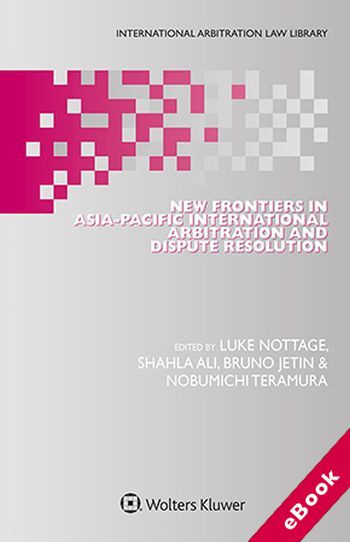
The device(s) you use to access the eBook content must be authorized with an Adobe ID before you download the product otherwise it will fail to register correctly.
For further information see https://www.wildy.com/ebook-formats
Once the order is confirmed an automated e-mail will be sent to you to allow you to download the eBook.
All eBooks are supplied firm sale and cannot be returned. If you believe there is a fault with your eBook then contact us on ebooks@wildy.com and we will help in resolving the issue. This does not affect your statutory rights.
New Frontiers in Asia-Pacific International Arbitration and Dispute Resolution is an invaluable book that challenges the existing procedures and frameworks for cross-border dispute resolution in commercial and treaty arbitration. The eastward shift in international dispute resolution has already involved initiatives not only to improve support for international commercial arbitration (ICA) and investor-state dispute settlement (ISDS) but also to develop alternatives, such as international commercial courts and mediation. This remarkable book focuses on these initiatives and their accompanying case law and trends in the Asia-Pacific region.
What’s in this book:
An outstanding team of experienced and insightful arbitrators and scholars describes the following pertinent developments:
Evolving practices and high-profile cases have been charted out by the contributors to make informed observations about where changes are needed and educated guesses about the pros and cons of reforms. The leading jurisdictions covered are China, Hong Kong, Japan, Malaysia, India, Australia and Singapore.
How this will help you:
Being a pioneer in-depth study of recent trends in dispute resolution practice related to business in the Asia-Pacific region, the book’s practical analysis of new resources for dealing with the increasing competition among countries to become credible regional dispute resolution hubs will prove to be of great value to specialists in the international business law sector. Lawyers will make informed decisions on the venue and dispute resolution methods that are the most suitable for any specific dispute in the region, and policymakers will confidently assess emerging trends in international dispute resolution policy development and treaty-making.